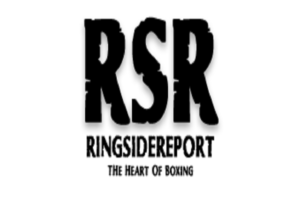Ringside Report Looks Back at Boxer Donald Emerson Scott – Boxing News
 By Donald “Braveheart” Stewart
By Donald “Braveheart” Stewart
As I write this, the latest British Olympic medalists from Tokyo have, just turned professional in the boxing ring. We have become used, in the UK, to the cycle of Olympic Games providing us with the next heroes to be followed with our admiration for their fists.
They stand on the shoulders of their predecessors but those of greater note, however, are often the fighters who stood out alone in their Olympic experiences. It was not just down to increased funding that we see better British presence at the Olympics but also the embarrassment of seeing only Audley Harrison pick up a Gold at Sydney or Amir Khan get silver in Athens.
Now we are used to seeing the British boxing team go to the Olympics and pick up multiple medals rather than the occasional and odd triumph. The Olympics have always been a big deal in sport and in the worldwide community. In the shadow of World War II, they took on an increased significance. You have to remember them in the context of the previous Olympics in 1936 which had been hijacked by Adolf Hitler. Now in 1948, they were to be held in the capital of one of the countries that had beaten him in combat – London, England.
It was symbolic in so many ways that 3 years after a war, there was to be a celebration of sporting excellence, in the very city that the Nazi had tried to bomb into submission. British boxing hoped it was ready. In eight fighting classifications we came away with two silvers. It was a reasonable haul and for many this was the contest where taking part was far more important than the result… Many were grateful to be both free and alive.
Donald Emerson Scott, 16-5, 14 KOs, was one of those representatives who fought for Britain and came home with one of those silver medals round his neck. A light heavyweight he did turn professional, fighting as Don Scott, but his greatest triumphs were in an amateur ring. As well as the Olympic silver, he was to take gold in Auckland, New Zealand at the British Empire Games – which became the Commonwealth Games, after former British colonies started to gain their independence.
Hailing from Derby, he began his boxing career at the tender age of 12 years old in the Arboretum Boxing Club. There is no school report card with which to compare how his boxing interest in 1940, when he was 12, was affected by his boxing interest, but it was notable that at the age of 59, he went to night school to sit some school equivalent qualifications. We lost Scott in 2013 but not before he was chosen to take the Olympic torch through Derby in the year of the next London Olympics in 2012 – a very fitting bookend to his relationship with the Olympic movement.
Whilst he was too young to serve in the military during the worldwide conflict, he did do National Service after the war – a condition of being at an age to serve that was a legacy of conscription. He served in the Royal Military Police. Whilst in the military he continued with his boxing and won the Amateur Boxing Association (ABA) light heavyweight title in 1948, earning his spot at the Olympiad through that win. It was his second final appearance at the ABAs as he had been there two years previously- at just 17 years of age – but lost.
At the Olympics he fought successfully three times, beating Gyorgy Kapocsi of Hungary in the second round, beating Giacomo Di Segna of Italy in the quarter final on points and then Adrian Holmes of Australia in the semifinal. His win against Kapocsi was hailed as a particular triumph and upset marking his name out for future commentators and observers.
His final, was against George Hunter of South Africa and, he lost on points.
By all accounts, Scott was keen to turn professional straight after London 1948, but injuries hampered that dream so he then went to the Empire Games in New Zealand, returned with a gold medal round his neck and turned professional with his debut in April of 1950.
It was a disaster.
He was stopped out in his debut, in the 5th round by 31 fight veteran Ray Wilding, at the Royal Albert Hall but, he then picked himself up and gathered 10 wins thereafter, but he was never going to hit the heights in the pros he had in the amateurs.
He did manage to win a belt, in 1953 when he stopped Ted Morgan in the 3rd round of 12 to win the regional Midlands title in the Granby Halls, Leicester. Overall, he fought professionally 21 times and ended his career with a win on the 13th of April 1953 when he outpointed Wally Curtis back at the Granby Halls.
After retiring from the sport, he found employment in a variety of electrical and engineering roles. Never announced in a crowd at a boxing event nor brought into the ring for the limelight he did continue an association with the boxing business and did some coaching. The carrying of the Olympic torch round his home time by a man who had fought in one Olympiad as he literally passed the torch onto the likes of Natasha Jonas, Anthony Joshua and Luke Campbell in the next home time Olympiad, was a really fitting tribute to his exploits in the boxing world.

